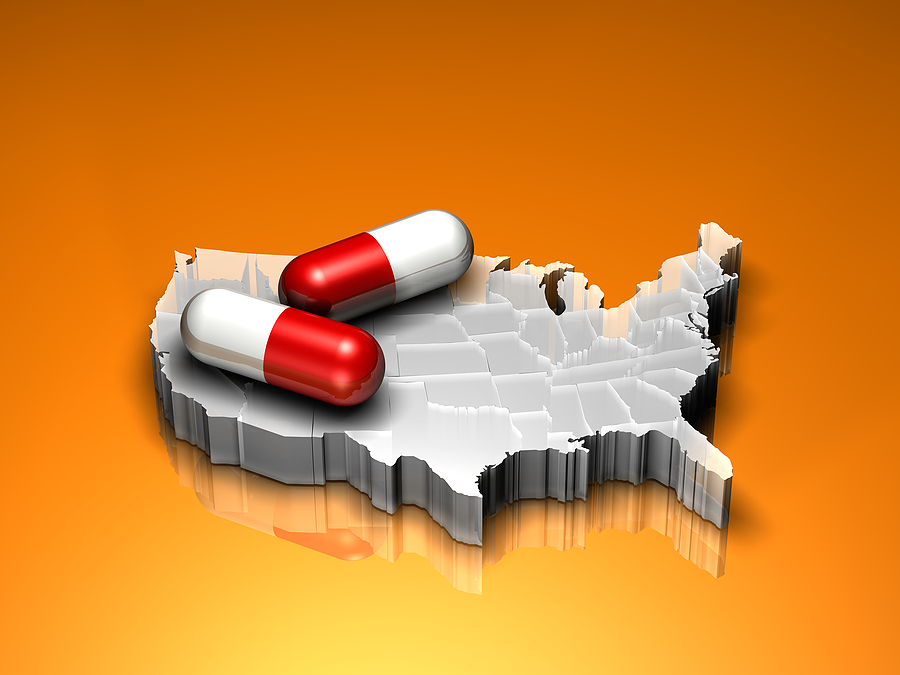Drug Makers Support 7-Day Limit on Rx Opioids
/By Pat Anson, Editor
A leading organization of pharmaceutical companies announced today its support for a 7-day limit on opioid prescriptions for acute pain.
The announcement -- made during a meeting of President Trump’s opioid commission – marks a significant shift for the industry and is likely to speed up efforts to have limits imposed nationwide on opioid medication for short-term pain.
“PhRMA is announcing for the first time our support to limit the supply of opioids to 7 days for acute pain management. Too often, individuals receive a 30-day supply of opioid medicines for minor treatments for short-term pain,” said Stephen Ubl, President and CEO of PhRMA, the Pharmaceutical Research and Manufacturers of America.
“Overprescribing and dispensing can lead to patients taking opioids longer than necessary and excess pills falling into the wrong hands.”
PhRMA is a trade organization that represents over 3 dozen pharmaceutical companies, including AstraZeneca, Bayer, Allergan, Bristol-Myer Squibb, Eli Lilly, Johnson & Johnson, Merck, Pfizer, Teva, Novartis, GlaxoSmithKline, and Purdue Pharma.
“Our announcement is candidly an unprecedented step for the industry. We’ve always supported physician autonomy and the preservation of the physician-patient relationship, but as you know, given the scope of this (opioid) crisis,we believe this is the right thing to do,” Ubl said.
“I want to thank you and the industry for stepping forward," said commission chairman Gov. Chris Christie of New Jersey. “This is a prevention measure… to limit the number of drugs that are out there for improper diversion and to make sure that we don’t inadvertently turn people into addicts by giving 30, 60, 90 pills the first time. And so the fact that the pharmaceutical industry is willing to step up and acknowledge that there is something that needs to be done is an important first step.”
New Jersey, Ohio, New York and several other states have already implemented or are considering laws to limit the number of days opioids can be prescribed and dispensed for acute, short-term pain. This week Florida Gov. Rick Scott announced that he would support legislation for a 3-day limit on opioids for acute pain in his state. Strict conditions would have to be met to get a 7-day supply.
A bill introduced in the U.S. Senate earlier this year would require doctors nationwide to limit the initial supply of opioids for acute pain to seven days, a prescription that could not be renewed. The bill by Sen. John McCain and Sen. Kirsten Gillibrand was referred to the Senate Judiciary Committee in April, but has gone no further.
CVS Health announced last week that it would limit opioid medication for acute pain to 7 days in all of its pharmacies nationwide, starting February 1.
CVS will also limit opioid doses for both acute and chronic pain to 90mg morphine equivalent units, and patients would be required to try immediate release formulations before using extended release opioids.
‘Moonshot’ Needed for New Pain Treatments
Today’s meeting of President Trump’s opioid commission focused largely on expanding access to addiction treatment and developing new ways of treating chronic pain without the use of opioid medication. During the two-hour meeting, there was hardly any mention of illegal opioids or the scourge of heroin and illicit fentanyl now sweeping the country.
"Our nation needs a moonshot commitment to the development of non-opioid pain treatments. We need new therapies and we need them fast," said Jim Campbell, MD, President of Centrexion Therapeutics. "The abuse of opioids costs lives, but the other equally important issue is the problem of untreated pain. Untreated pain leads to lost work, depression, lack of sleep, social withdrawal and may even lead to suicide."
Commission member Patrick Kennedy, a former congressman in recovery from addiction, said the problems of pain, addiction, depression and suicide are all intertwined, and need better advocacy.
“Clearly, depression is rampant. The opioid crisis was driven by a depression crisis. And while we’re talking about the opioid crisis and overdose deaths, suicide is getting right up there, to the height of the AIDS epidemic itself,” said Kennedy. “Because these illnesses are so stigmatized, the advocacy is really anemic. There’s no one out there shaking the trees as if this were HIV and AIDS, like we saw in those crises.”
To watch a replay of the commission meeting, click here.





